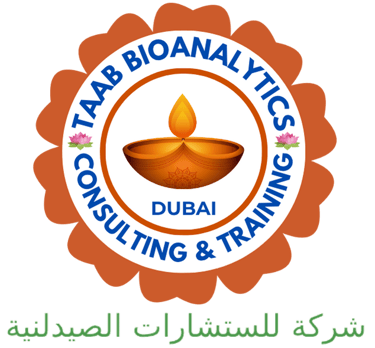PHARMACOLOGY
Pharmacokinetics (PK) and Pharmacodynamics (PD)
PK Studies: Investigate how the drug is absorbed, distributed, metabolized, and eliminated by the body. This helps in understanding how the treatment processed by the body.
PD Studies: Explore the drug's effects on the body and its mechanism of action. This includes assessing the drug's interaction with its target receptors or enzymes.
ADME Studies
Absorption, Distribution, Metabolism, and Excretion: Examine how the drug is processed within the body and whether it accumulates in specific organs or tissues.
Safety Assessment
Toxicology Studies: Evaluate the potential toxicity of the drug by administering varying doses to animals over a specified period. This helps identify any possible adverse effects and establishes a safe starting dose for clinical trials.
Dose-Response Relationships: Determine the relationship between the dose of the drug and its effects. This is crucial for establishing appropriate dosing regimens.
Efficacy Evaluation
In vitro efficacy tests: to study the mechanism of action of active ingredients on biological systems and their release, which are essential for demonstrating the efficacy of active ingredients for medicines.
In vivo efficacy tests: Utilize relevant animal models to simulate the disease or condition the drug is intended to treat. Assess the drug's efficacy in terms of its ability to produce the desired therapeutic effects.
Ethical Considerations
Ethical Use of Human Subjects: Preclinical studies help to ensure that only the most promising and safe drug candidates progress to human clinical trials, minimizing potential harm to human participants.
Good Laboratory Practice (GLP)
Follow GLP regulations to ensure the quality, integrity, and reliability of preclinical safety data. This is essential for regulatory submissions.
Regulatory Submissions
Preclinical data is a crucial component of regulatory submissions (e.g., IND applications, NDA submissions), providing evidence of safety, efficacy, and pharmacological properties for regulatory review and approval.
Pharmacology Units Consists of the Following Research Facilities
Bio-Analytical Laboratory
TAAB Biostudy Services conducted bioanalysis of several FDC molecules.
These molecules are analyzed in different polarity either positive or negative in different methods. Sitagliptin+Metformin+Dapagliflozin, Sitagliptin+Metformin+Glimepiride, Sitagliptin+Metformin+Pioglitazone, Teneligliptin+Pioglitazone+Metformin, Metformin+Glimepiride+Voglibose, Chlorthalidone+Metoprolol+Telmisartan,Vildagliptin+Metformin,Acotiamide+Pantoprazole, Bilastine+Montelukast etc.
We have also analyzed some hormonal drugs like Progesterone, Estradiol, Estrone etc. in a very low dose and measured in pictogram (pg) to nanogram (ng) levels in human plasma.
Bioequivalence Study Center
TAAB BIOSTUDY SERVICES, India is a Clinical Research Organization approved by the Drugs Controller General of India. Established in 2007, which provides a range of clinical research services including Bioavailability and Bioequivalence studies.
We provide comprehensive clinical research services including Bioavailability and Bioequivalence studies for pharmaceuticals. Also, Animal Toxicity & Clinical Trials under the domain of clinical research and drug safety.
